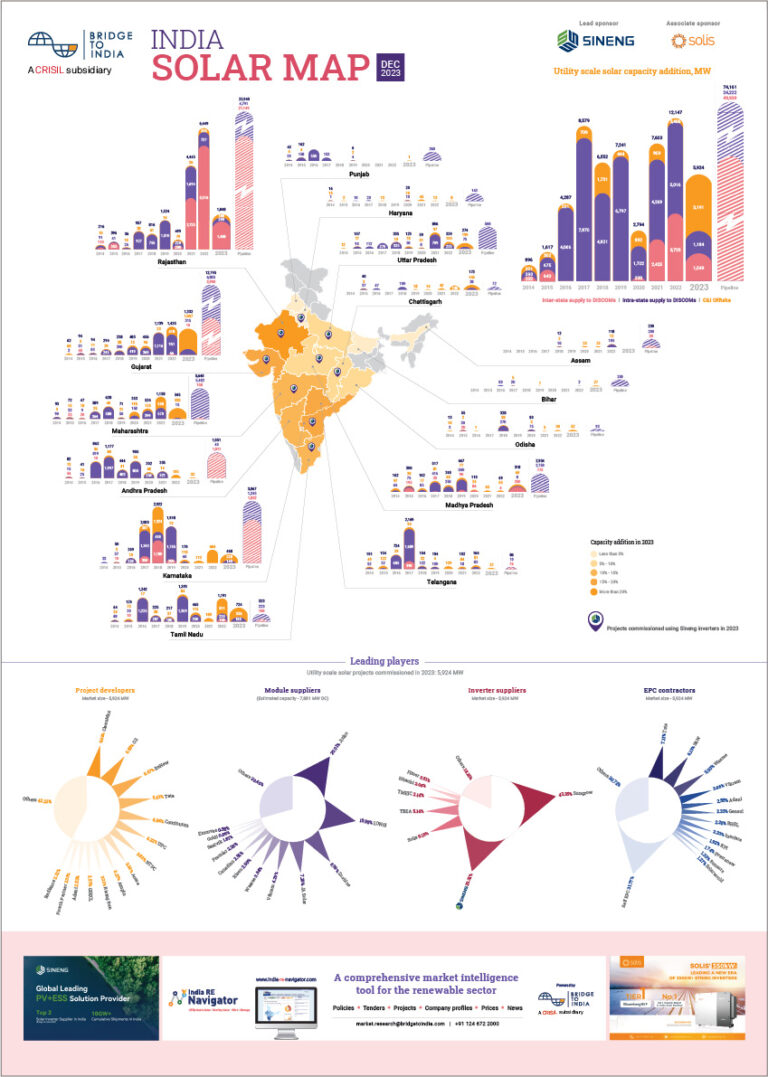Mr. Akhilesh Magal heads the Project Development team as Senior Consultant at BRIDGE TO INDIA.
Since the announcement of the National Solar Mission (NSM) in early 2010, there has been considerable development in the Indian solar market.
- The Indian solar market is poised for further growth with the announcements for new solar policies
- New policies provide several opportunities, each with different sets of permits, clearances and approvals.
- The absence of structured information deters new entrants into the market and imposes challenges on players that are already in the market
The overall installed capacity has increased from 22 MW in 2010 to over 1,050 MWtoday. This growth was propelled largely by the NSM and the Gujarat State Solar Policy. The market is now poised for further growth with the announcements of solar policies from states such as Tamil Nadu, Andhra Pradesh, Chhattisgarh and draft policies of phase two of the NSM. Meanwhile, the Renewable Energy Certificate (REC) mechanism provides an alternative to the Feed-in Tariff (FiT) policies. This provides investors, project developers and EPC players several opportunities. The challenge is that each of the policies requires different set of permits, clearances and approvals – at different timelines and costs. Navigating through these procedures and assessing their relative risks and returns can be challenging.
At the same time, an un-structured, ill-informed approach to project development jeopardizes project timelines and affects the profitability of projects. From a bankability perspective, structured and well-documented information is key to achieving financial closure. Although information is available, it is often distributed, haphazard and uncritical. This absence of structured information deters new entrants into the market and imposes challenges on players that are already in the market.
The Project Development Handbook from BRIDGE TO INDIA aims to present relevant information in a structured manner to provide a sound overview of the processes, timelines, costs, challenges and opportunities in project development in India. The manual shall help in the assessment of projects in terms of profitability and bankability across various off-take options. The handbook is meant for investors, project developers and EPC players.












